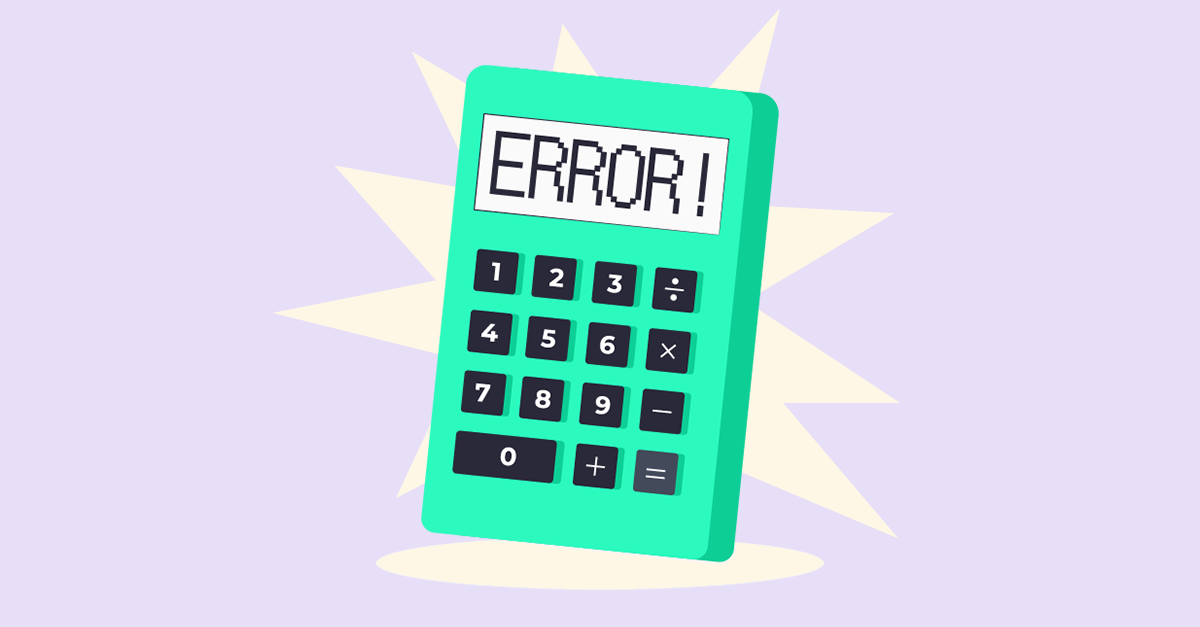Pre-Revenue Valuation for Startups: 3 Valuable Techniques
Startup valuation is a tricky business. With typical business valuations, you’re looking at an established company’s financial reports. It’s much...
Understanding how to calculate startup valuation is not just about numbers and negotiations. It’s part of your startup’s story. While it’s probably not something you think about every day, it has wide-ranging implications - for everything from fundraising to partnership choices.
Here at Forecastr, we get all sorts of questions about startup valuation. When you talk to entrepreneurs all day long, this is a really hot topic!
In this post, I’m going to break down some of the most common questions we get. I’ll do my best to keep it simple and straightforward so you can get the answers you need without the headache of translating tons of financial gibberish. Let’s go!

Figuring out your valuation isn't just about crunching numbers; it's a mix of hard facts and a touch of intuition.
Let's start with the basics: look at your financials - think revenue, profit margins, and how fast you're growing. If you're in the early stages and don't have much financial history to show, you’ll need to lean heavily on projections. These shouldn’t be wild guesses; they should be well-thought-out, based on solid market research, user engagement data, and a hopeful yet realistic view of how high your startup might soar.
But there's more to it than just the numbers. You've also got to consider the human element – how strong is your team? How unique is your product or service? Who else is already playing in your space?
If you just need a ballpark figure, here are two methods you can use. The first is cost-to-duplicate. Basically, you try to figure out what it would cost someone to build your startup from the ground up. The second is the discounted cash flow approach. Here you forecast your future cash flows and dial them back to their current value today.
If you have no idea how to get started on either of those, it might help to bring in someone who speaks the language. Or start building a financial model, which is an awesome tool you can use to answer questions like these. Whichever route you take, remember to be transparent, keep it real, and get a second opinion from a trusted mentor.
When your startup is just sprouting its wings, its value isn't so much in the here-and-now but more in the what-could-be. Simple, right? (wink)
Let me try that again! At this stage, it's less about how the numbers stack up today and more about the potential for growth down the line. Think of it like this: investors are placing their bets on your team's ability to turn your vision into reality, to steer through the ups and downs, and to zigzag skillfully when the road gets tough.
So, in a nutshell, you need good projections. A financial model can help you build those.
But again, it’s not only about the numbers. You need to consider the size of the market you’re aiming for, how unique and workable your product or service is, any early ripples you’ve made in the market, and the alliances you’ve forged - these are big factors, and you should capture them in your projections and your valuation.
Finally, a word to the wise. Let’s talk about the story you’re telling. In the early stages, a compelling narrative is sometimes just as important as the hard numbers. You want to show investors that you’re not just filling a gap in the market, but disrupting it with a strategy that can’t be denied. Tie your numbers together with that story to win investors over. We call this a ‘numerical narrative’ and investors love it.

Pre-money and post-money valuations are important to understand.
Essentially, pre-money valuation is what your business is worth before it gets any new cash from investors. Think of it like a picture of your company's value right before you cash that fundraising check.
Post-money valuation includes the new fundraising check—it’s your pre-money valuation plus whatever investment you've just received.
Why does this matter? Well, when you're hashing out deals with potential backers, knowing these values can make or break negotiations. Let's say your startup is valued at $1 million before anyone writes a check—that's the pre-money valuation. Then someone decides to invest $500,000; now we’re talking about a post-money valuation of $1.5 million. These two figures help everyone involved figure out how much equity, or ownership, they get for their money.
A 'good' valuation for a startup isn't a one-size-fits-all thing. The latest med-tech AI is obviously going to get a different valuation than a new all-organic ice cream shop. They might both have ten employees and two years of experience, but one is worth multiples more than the other.
Determining a 'good' valuation for your startup is about determining what makes sense for your company, considering its unique situation and future prospects. It depends on how the market values similar companies, how fast you're growing, where you stand among your competition, and the state of the economy overall.
For early-stage startups in their seed phase, it’s often more about the vision they sell than the hard financial figures they’ve demonstrated.
But here's where things get tricky: aim too high with your valuation and investors will expect big things; it gives you some breathing room today but sets that bar sky-high for tomorrow.
Aim too low? You risk handing over too much control to investors for less money than you need. The sweet spot is finding a figure that reflects what you've already done, what lies ahead on your roadmap, and an attractive deal for those putting up cash.
Your startup's valuation is more than just an arbitrary number—it's like your company’s financial north star. It steers internal choices and drives talks with stakeholders and investors. It plays a crucial role in how much of the company investors get for their money.
A strong valuation does wonders for investor trust and can make fundraising efforts go smoothly. But it doesn't stop there.
Valuation also acts as a yardstick to measure your growth, helps you set goals, and guides key business decisions. Thinking about teaming up with a new partner or growing your own? Your valuation lays down the groundwork so you can move forward confidently and strategically.

Intangible assets might be invisible, but they can pack a heavy punch when it comes to your startup's valuation. We're talking about things like intellectual property, brand clout, and the know-how of your team. This stuff shows you've got the chops for innovation, standing out in the market, and scaling up down the road.
Got some patents or unique tech under your belt? That could mean you have an ace up your sleeve against competitors.
And let’s not forget other intangibles like solid customer ties or big-league partnerships; these suggest you’re set for long-term success and consistent income streams.
Pinning down the exact value of intangibles can be tough, but they shape how investors see you—often bumping up what they think you’re worth. If you can highlight these hidden gems effectively, it could lead to a thumbs-up on getting an attractive valuation.
Absolutely. Market trends are like a barometer for your startup's valuation—they show how healthy your industry is and where it's heading.
When the market’s thriving, it can pump up your value because there's a bigger pool of customers and more opportunities to make money. But if things look gloomy or just stuck, that might cool expectations since investors see more risk and less certainty.
Knowing these trends inside and out lets you position your business smartly. You can ride the wave of positive movements and pivot away from negative ones. This shows flexibility and vision on your part, and investors will eat it up.
This kind of strategic thinking can really turn heads with investors, advisors, and people who matter to your company’s future.
There are some classic errors people make when calculating startup valuation. We have a whole post dedicated to them, here.
The biggest one is getting too starry-eyed about future profits. Optimism is great, but those forecasts need to be rooted in solid evidence from your performance data and market research.
Another one is overlooking risks. The risks that come with the territory of early-stage startups can skew things heavily—you've got to consider operational hiccups, market shifts, and financial unknowns.
Another trip-up is leaning too heavily on what has happened so far without thinking about what could happen next. Startups are always changing gears, and past wins don't necessarily guarantee a rosy future. If your strategy and projections are forward-looking, you’re in the clear.
Finally, don’t leave out intangibles like patents or brand strength. They might not fit neatly in your spreadsheets, but leaving them out could mean selling yourself short. The trick is mixing real numbers with a story that sticks and sometimes bringing in an expert eye for good measure.

To really get potential investors on board with your valuation estimate, you've got to do more than just throw numbers at them. You need a story that grabs their attention—one that mixes solid facts with the big dream you're chasing.
Lay down those financials first, making sure they're sensible and data-driven. Shine a light on the wins you've already had, how much momentum you’ve picked up, and where you see things going.
But keep in mind—investors are putting money into your team as well as your idea. Talk up what makes your crew special, how your product or service stands out from the crowd, and the gap it fills in the market.
Be upfront about any risks too but don't leave it there; show them how ready you are to tackle those challenges head-on. Nail this blend of hard evidence and heartfelt storytelling to paint a clear picture of value that wins investors over—and earn their trust while doing so.
At the end of the day, the investor typically gets to set the final number for your valuation. But you should do everything in your power to guide that number where you want it to be.
Knowing how to calculate startup valuation can feel like you're trying to find your way through a tricky labyrinth. But now that you've got the know-how and some solid advice, you have a path you can walk with confidence.
Here at Forecastr, we’re dedicated to equipping startups and small businesses with the knowledge and resources they need to harness their financial data and steer their ventures toward success.
If you have more questions, or you’re ready to phone a friend for some professional advice, give us a shout! One of our financial modeling specialists will be happy to review your situation and help you find the best path forward.
Get notified about new events, free resources, and fresh content

Startup valuation is a tricky business. With typical business valuations, you’re looking at an established company’s financial reports. It’s much...

Calculating startup valuation is a difficult task for most founders. It’s notoriously hard to do, and it influences everything from fundraising to...

3 min read
Perhaps you are a founder with a great idea or minimum viable product. Perhaps you are an entrepreneur with a small business that you want to...